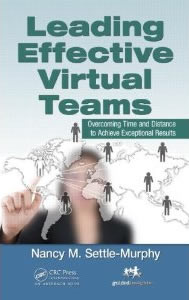Chances are, you probably think you’re a pretty good listener. Most of us do. We aren’t the type to interrupt our colleagues, trounce on someone else’s ideas, or whip out a mobile device in the midst of a conversation (at least not in plain view!). So we must be good listeners, right?
Well, maybe not. Just because we are polite enough to wait for someone to stop talking before we jump in to offer ideas, doesn’t mean we have truly heard what the other has to say. If we know how to keep our mouths shut when someone rattles off a bunch of crazy ideas, that doesn’t mean our minds have remained open. And if we have been very discreet when we check email as others speak, it certainly doesn’t mean that we have been paying attention.
Whether we’re interacting face to face or virtually, we can all stand to be better listeners. Some say that up to 85% of what we know we have learned through listening. If we aren’t really listening, we’re not learning. Without attentive listening, we can’t understand others’ frames of reference or important contextual information, and thus will have a harder time connecting on any meaningful level. (This difficulty is exacerbated in the virtual world, where we have to develop sharply-attenuated hearing to make up for the loss of visual cues.)
Most communications skills courses tend to focus on making people more articulate, effective and expressive through writing, speaking and presenting. Listening is rarely a focus. In this edition of Communiqué, I offer some practical tips for making us better listeners. Please see the links below for related articles.
- Choose to listen fully. Be intentional about completely focusing on what others are saying. That means planning your time so that you don’t need to check email, write notes for that urgent report, or whisper to your colleague about the latest project stumble. It also means bringing the tools you need to record and retain key points (e.g., paper and pen), and not bringing the tools (such as your smart phone) that will only distract you.
- Put that device down. (Yes, you!) The human brain cannot fully attend to two conversations at once. (And “fully attend” is the key here.) If you’re really listening, you need to give it both ears and your full brain. Turn your device off (or at least render it inaudible, including the annoying and alluring ping of new email), place it face down and ignore it. Better yet, leave it behind before you start the meeting so you won’t have to agonize as to whether you really need to check all of those “critical” emails and IMs.
- Demonstrate genuine curiosity. Ask probing questions to show you’re interested and have a real desire to learn more. Frame your questions in a way that invites an easy response, versus putting the other on the defensive. (E.g., “That’s an intriguing concept. How did come up with those options? Can you take us through the trade-offs?” versus: “What were you thinking?”) Depending on the situation, you might gently interrupt during a natural pause, or jot down your questions to ask when the speaker is finished.
- Summarize and paraphrase. This shows that you earnestly want to make sure you can correctly interpret the intended meaning of the speaker’s words, and it also helps you to internalize and fully comprehend key points. It has an additional benefit of helping to make sure that others have interpreted these points accurately as well. In essence, summarizing can help validate (for both you and the speaker) that your listening skills are fully operational.
- Hold that thought. If you can barely wait until someone stops speaking so you can offer some of your own terrific ideas, then you’ve already stopped listening. As Stephen Covey famously said, “Most people do not listen with the intent to understand. They listen with the intent to reply.” Make a quick note of your ideas so you don’t forget them, and then turn your full attention back to the speaker until you have a chance to speak.
- Capture key nuggets. Bring a pen and paper to every meeting to capture salient notes, even if you know that meeting minutes will be sent out later. This can help you recall key points both during the meeting and later on. It also gives you a place to jot down probing questions and ideas you may want to offer. (For those of you thinking that a notes app can do a fine job in this regard, remember, it’s a slippery slope once you start tapping on your device, even though your intentions may be noble.)
- Seek meaning in the nonverbals. In a face-to-face meeting, be on the lookout as to what someone’s body language, eye contact, posture and facial expressions might be conveying. In a virtual meeting, listen deeply for tone, expression, cadence, pitch, speed, hesitation, enthusiasm, smiles or frowns, and periods of silence. (Many of us find that by closing our eyes during virtual meetings, we can better focus our senses to hear more deeply than when our eyes are taking in information around the room.)
- Notice the triggers that prevent you from listening. If you feel tired or bored, a quick walk around the room can help. If you strenuously disagree with the speaker’s point, challenge yourself to find something you can agree with before you speak up. If you dismiss the speaker as being less than credible about the topic at hand, be open to learning something anyway. When you start drifting off or fading out, it’s up to you to find ways to reel yourself back in. Remember: The speaker is not there to entertain you. You have to take responsibility for staying engaged, and not necessarily the other way around.
When you make a commitment to truly listen, you may feel that you’re sacrificing efficiency. (For example, you’ll have to wait until after your meeting to manage your inbox , and you may need another meeting to get all of your questions answered.) But what you get back in return for your full and focused attention is enormous: More well-informed decisions, greater empathy for your colleagues’ perspectives, better appreciation for their ideas, greater trust and mutual respect, and ultimately, a far better use of everyone’s time.
Links
Past Communiqués:
Breaking the Wall of Silence in the Virtual World
The Real Cost of Persistent Multitasking: 9 Tips to Minimize the Damage
You’d be a Great Communicator if Only You Could Just be Quiet
Great HBR blogs:
What Gets in the Way of Listening
Is Listening an Endangered Skill?
Offerings from Guided Insights:




